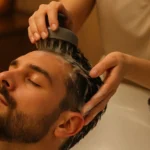Does Ageing Affect Sleep?
One of the most common issues older adults face is insomnia. This condition is caused by several overlapping factors and can significantly impact sleep quality and duration. For example, older people are less likely to experience deep sleep, and their body’s circadian rhythm is altered. This affects sleep patterns by affecting hormones and can cause older people to wake up earlier than usual.
Ways How Does Aging Affect Sleep?
- As we grow older, our bodies change, including sleep patterns. We spend less time in deep sleep and wake up more often. Our brains slow down, and wounds take longer to heal. Our sleep patterns also change, which can be frustrating for older people. Long-term insomnia, for example, is associated with an increased risk of auto accidents and depression.
- Other factors such as neurologic and psychiatric conditions may also contribute to poor sleep. Many older adults take more prescription medications than younger people, which can interfere with sleep. Fortunately, a doctor can modify your medications to help you sleep better. Also, lack of exercise is a common cause of poor sleep. Even moderate amounts of aerobic exercise can improve your sleep quality. Stress and life changes can also interfere with sleep, especially in older people. You need to learn how to cope with stress to get proper sleep.
- Studies conducted by the National Institute on Aging have indicated that lack of sleep is closely related to poor health. It’s been linked to an increased risk of cardiovascular disease, obesity, and depression. Furthermore, insufficient sleep also worsens moods and reduces concentration. Insufficient sleep can also affect memory and attention problems in older adults.
Insomnia is a common complaint among older adults. It affects about half of those aged 60 years and older. While some of these cases are temporary, many people have chronic insomnia, characterized by waking up too early or struggling to stay asleep. This sleep deprivation leads to poor quality sleep, a reduced immune system, and daytime sleepiness, which increases the risk of accidents.
Older people are likely to have different sleep patterns and are more likely to wake up earlier in the morning. Many older people take several medications for various health issues, which interfere with sleep. These medications can make people more tired and may even make their condition worse.
Tips To Stop Ageing And Get Deep Sleep
A regular sleep schedule is an excellent way to promote a good night’s rest. Avoid strenuous exercise, alcohol, caffeine, and nicotine a few hours before bedtime. And try to keep your bedroom as dark and quiet as possible. The sun can also affect your sleep – stay out of the sun during peak hours of the day.
Exercise
Exercise can improve sleep, and this can benefit people of all ages. Older adults may even benefit from exercise to prevent the effects of aging on the body. In addition to cardio, resistance training, yoga, and tai chi are good ways to improve sleep. They can also boost mental health and mood. Another benefit of exercise is that it stimulates circadian rhythms, which are important for proper sleep.
Also to get proper sleep, you need to sleep on a proper mattress. There are various types of mattresses based on your comfort and you can choose one that suits you.
Avoiding Alcohol Or Tobacco Before Bed
Drinking alcohol or tobacco before bed can disrupt your sleep cycle. Alcohol decreases your ability to reach REM sleep, the most vital sleep phase. Alcohol increases the likelihood of having a shorter REM cycle and disrupting your natural waking process.
Despite popular perception, alcohol and tobacco can lead to sleepless nights. They can also cause problems during the day. Alcohol acts as a sedative and interferes with REM sleep. Many people who drink alcohol before bed experience a poor night’s sleep, which leads to insomnia the next day. This cycle creates a vicious circle of over-drinking and excessive sleep, where people self-medicate with alcohol before bed to go to sleep and then end up drinking more alcohol to stay awake.
The Bottom Line
While a lack of sleep is not directly related to Alzheimer’s, a poor sleep schedule can seriously affect a person’s health and well-being. It can lead to impaired physical functioning, memory loss, and a higher risk of falls. In addition, it can also increase the risk of mortality.







